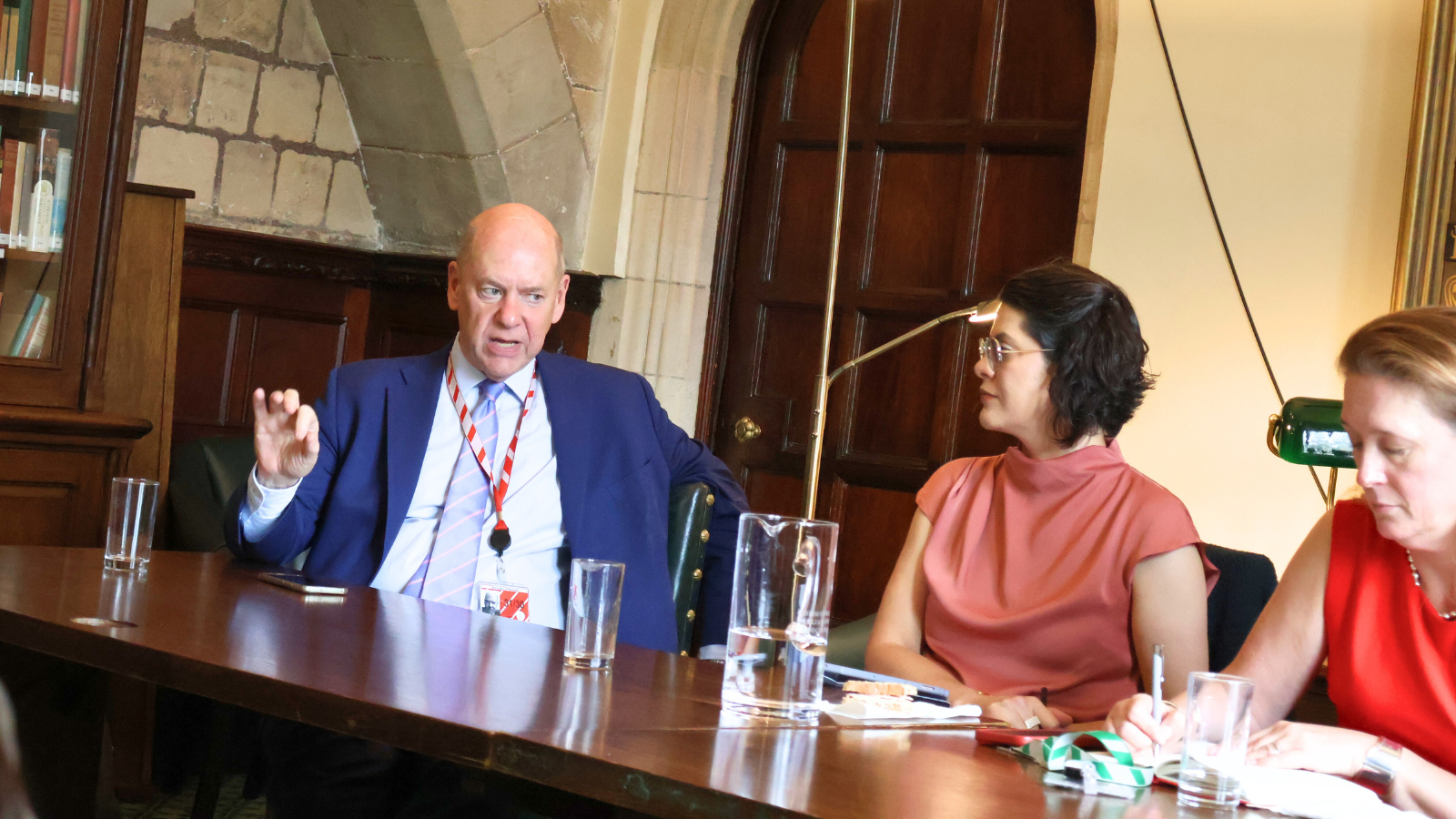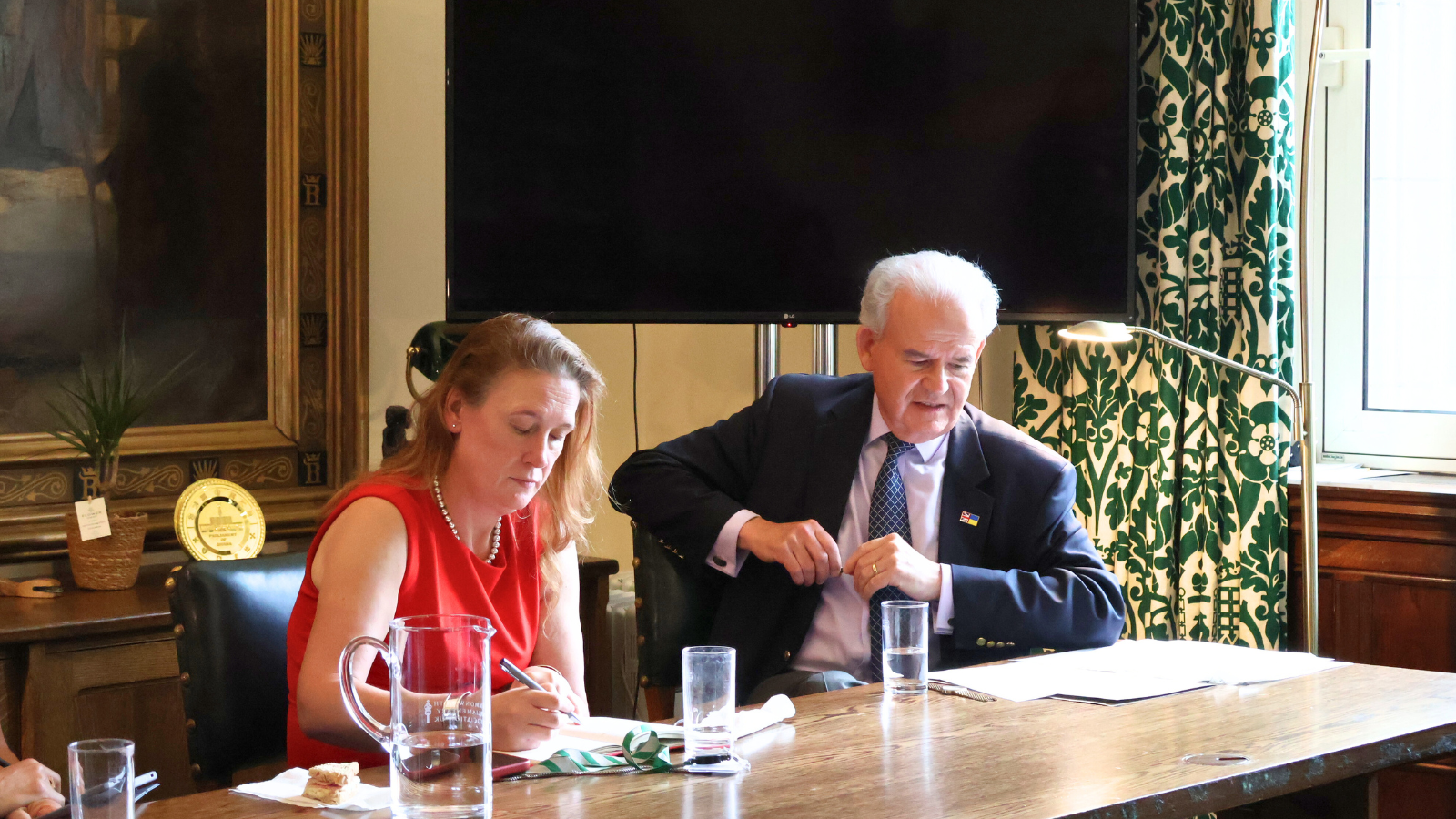Lord Evans lists threats to parliamentary democracy
Published 23 July 2025
What are the threats to parliamentary democracy right now?
According to Lord Evans of Weardale, a former chief of MI5, it is covert means used by certain nations.
Speaking to UK parliamentarians and parliamentary staff at a Lunchtime Conversation organised by CPA UK, he said,
“Some activities by states - particularly Russia and China - are causing real concern on the national security side. One of the things I am concerned about is the way in which those countries are using covert means to undermine and discredit democracies in a variety of ways: through political influence, through espionage, through cyber-attacks and through the manipulation of information flows.”
Lord Jonathan Evans, a crossbencher in the House of Lords, was joined by two other panellists. Together they were exploring threats to democracy and how international collaboration can mitigate those threats.
The Lunchtime Conversation was held to mark one year of a new parliament in Westminster.
He was joined by Emily Darlington one of the new cohort of MPs in Westminster. She is the Labour MP for Milton Keynes Central and sits on the Science, Innovation and Technology Committee. Doctor Sofia Collignon from Queen Mary University of London was there too. She is an expert in the study of candidates, elections and parties, and gendered violence against those involved in politics.
Chaired by Julian Lewis MP, who has led both the Defence Committee and the Intelligence & Security Committee, the conversation was varied. It touched on a number of critical areas including Russian statecraft, the impact of BBC World Service cuts, misinformation, disinformation, new technology and the harassment of parliamentarians, particularly women.
Emily Darlington described the attempts to intimidate her.
“There are the ‘pile-ons’. I had both Tommy Robinson supporters doing many 'pile-ons' and Andrew Tate, who decided to deliberately tweet me, and therefore so did all his supporters. But what's really interesting is that those 'pile-ons' are not all real people. They are there to get me to stop talking about whatever I’m talking about. You can see the influence of the bot.”
Bots are computer programmes that automatically do certain tasks. On social media they can pretend to be real people and write messages accordingly.
Emily identified another threat which she believes is not sufficiently understood.
“More recently there's something happening that I don't think we've really got to the bottom of. The industry would call it ‘shadow banning’. It’s where social media platforms themselves de-prioritize posts from particular politicians. When you have social media owners who have particular political points of view, who are actually taking decisions to use the algorithm to de-prioritize posts, that is election interference.”
Dr Sofia Collignon pointed to her research on social media use and how safe parliamentarians feel.
“Our data suggests that women are more likely to stop using social media, and that has an electoral effect. It’s preventing women from communicating with potential voters. This is important because research shows that campaigning using social media allows you to bypass certain barriers like having extra caring responsibilities or having less financial resources.
"What we also observe is that people’s feelings of being safe are changing. And it's not necessarily whether you personally have been harassed or not. It's whether the public discourse and the environment is becoming more toxic.
"One of the really important things in democracy is that everybody should feel safe to participate and express their opinions in a constructive way.”
This Lunchtime Conversation was held on Tuesday 22nd July, the last day of parliamentary business before the summer recess.
Regular monthly Lunchtime Conservations are due to start in October.

Lord Evans of Weardale and Dr Sofia Collignon

Emily Darlington MP and Julian Lewis MP